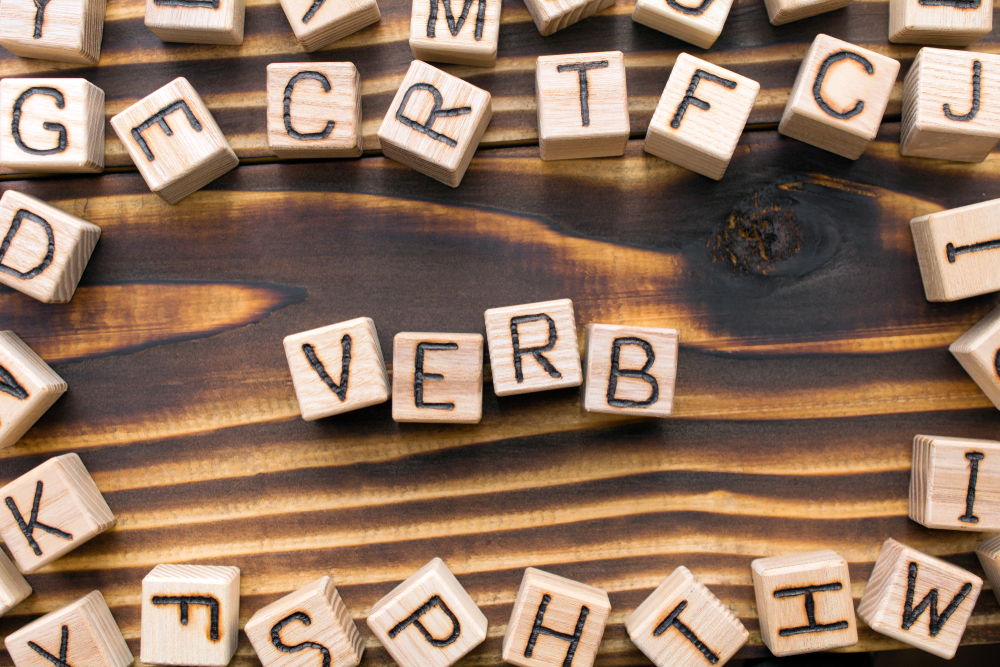Easy Logical Thinking worksheets activities for Ages 4-7
13 filtered results
-
From - To
Enhance your child's logical thinking skills with our engaging Easy Logical Thinking worksheets, designed specifically for ages 4-7. These fun and interactive activities promote problem-solving, pattern recognition, and critical reasoning in a playful way. Our worksheets incorporate vibrant illustrations and age-appropriate challenges that capture young learners' interests while helping to build a solid foundation for future success in math and science. With a variety of exercises, your little ones will enjoy using their minds to solve puzzles, match images, and complete sequences. Explore our collection today to foster creativity and cognitive development in your children, making learning both enjoyable and effective!
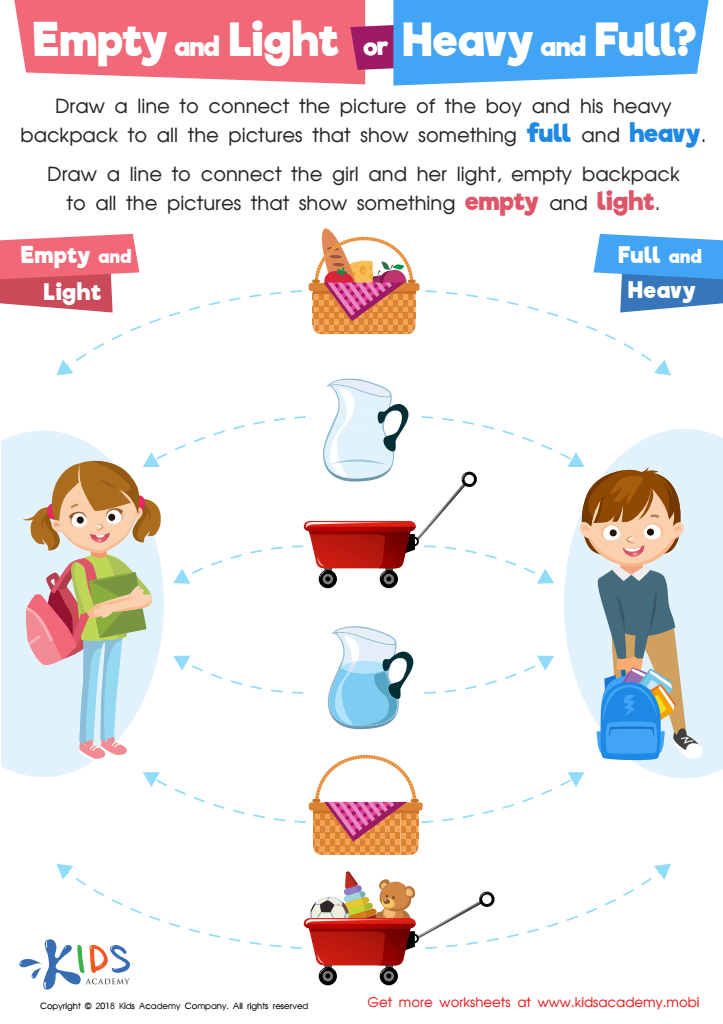

Empty and Light or Heavy and Full? Worksheet
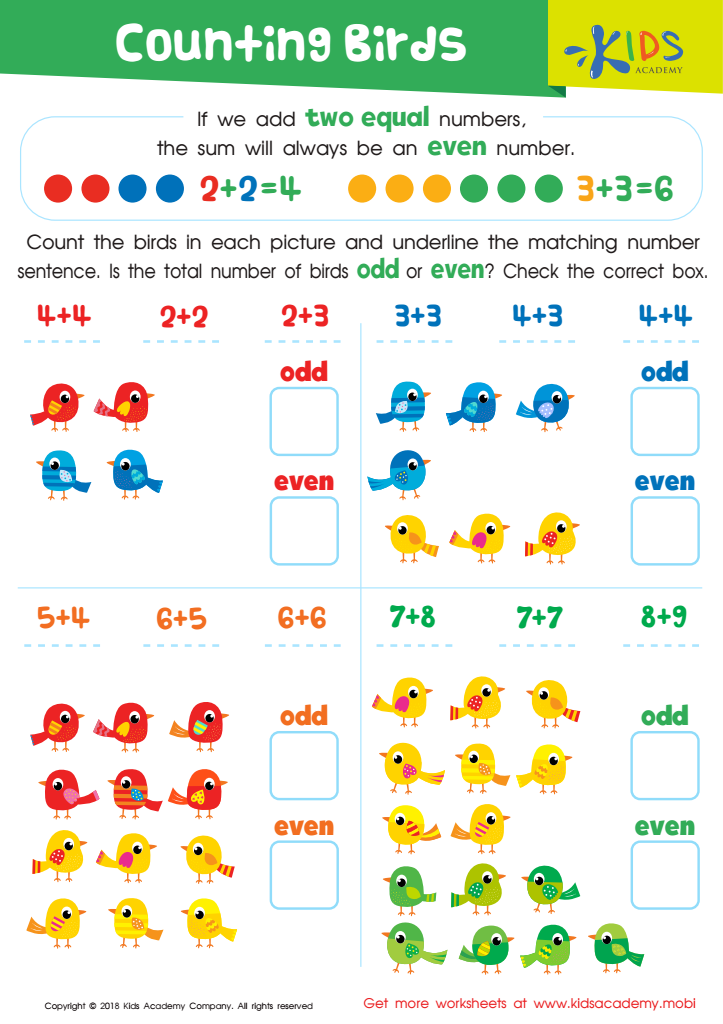

Counting Birds Worksheet
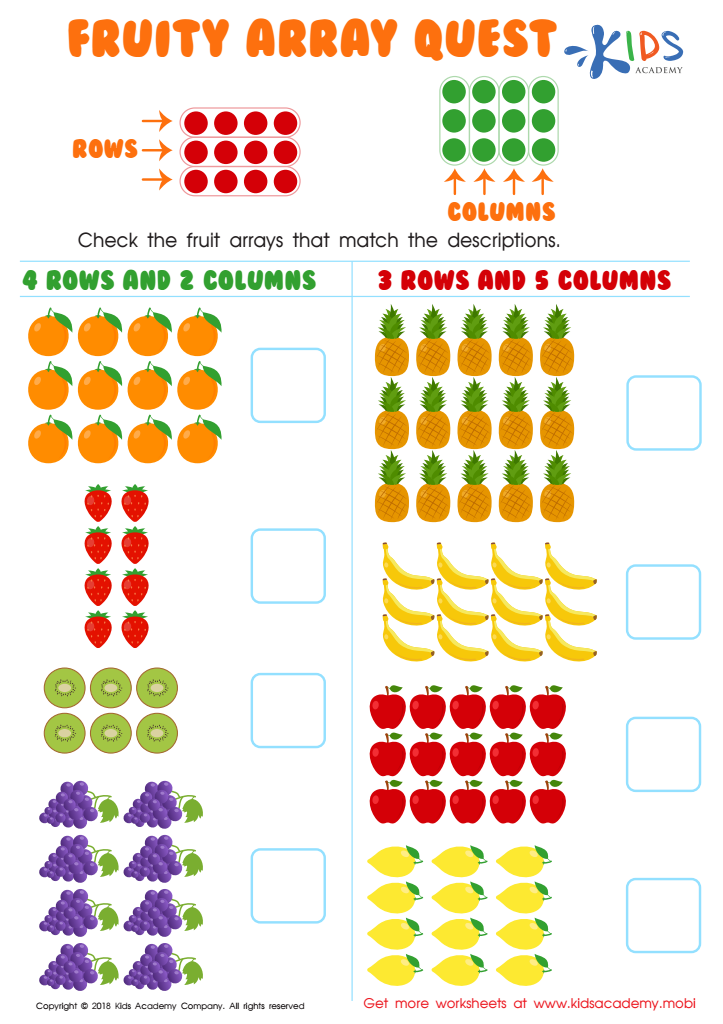

Fruity Array Quest Worksheet


Colorful Arrays Bingo Worksheet
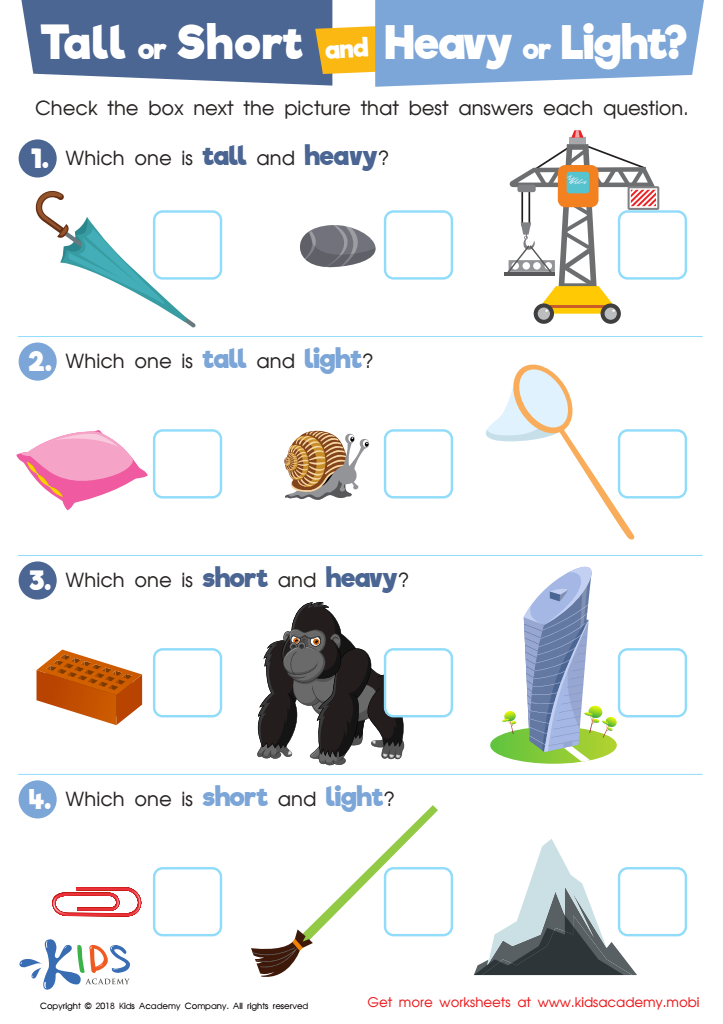

Tall or Short and Heavy or Light? Worksheet
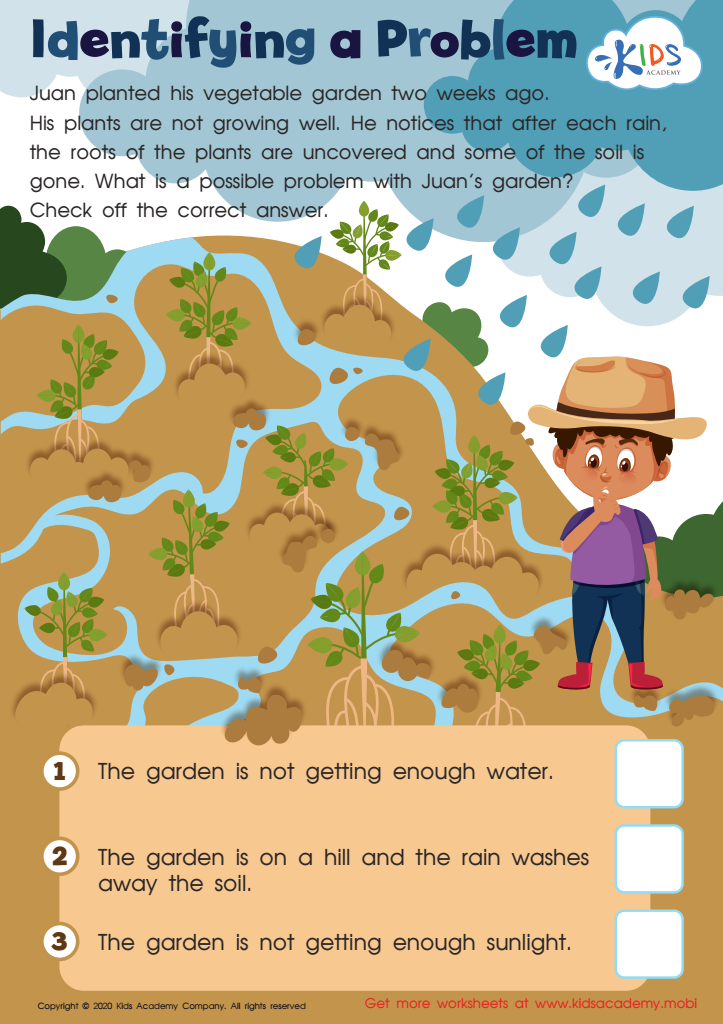

Identifying a Problem Worksheet
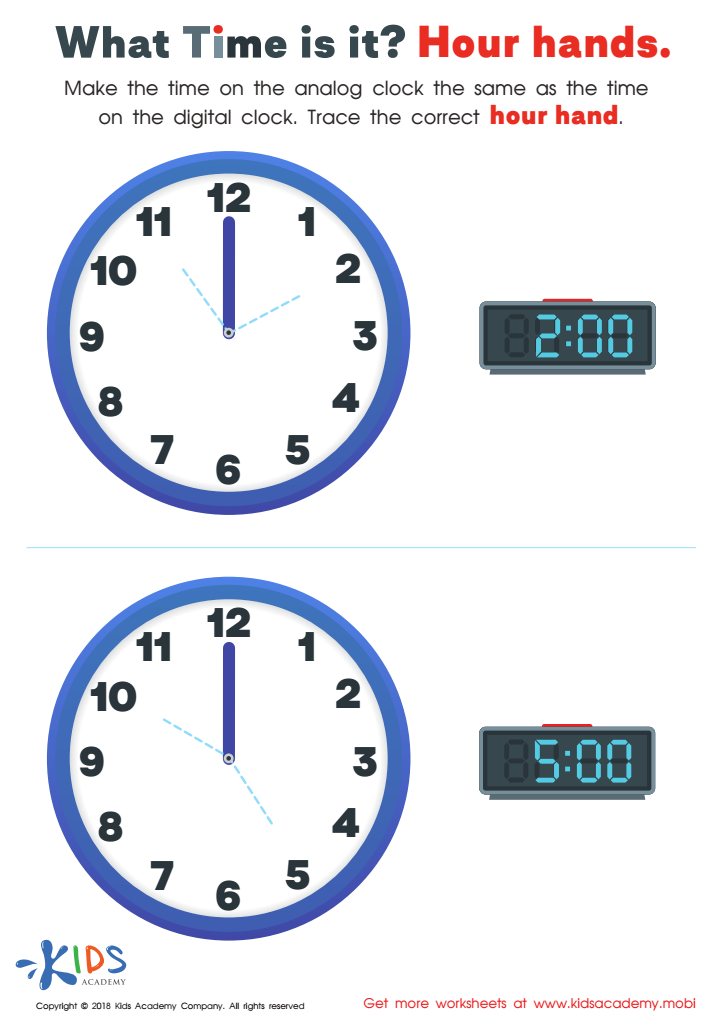

What Time Is it? Hour Hands Worksheet
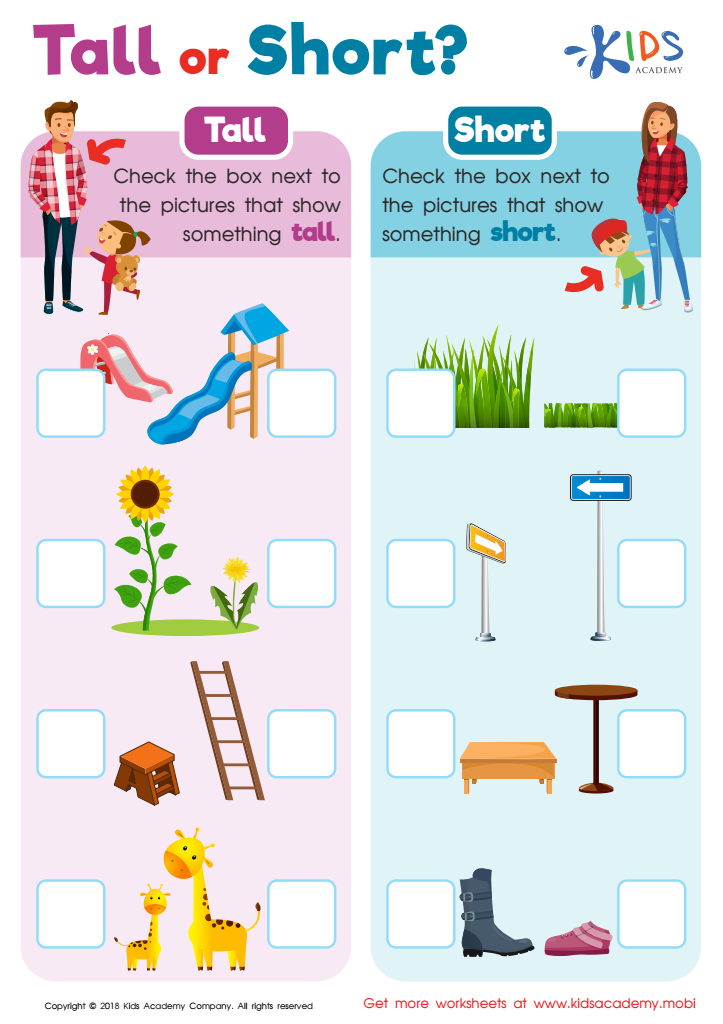

Tall or Short? Worksheet
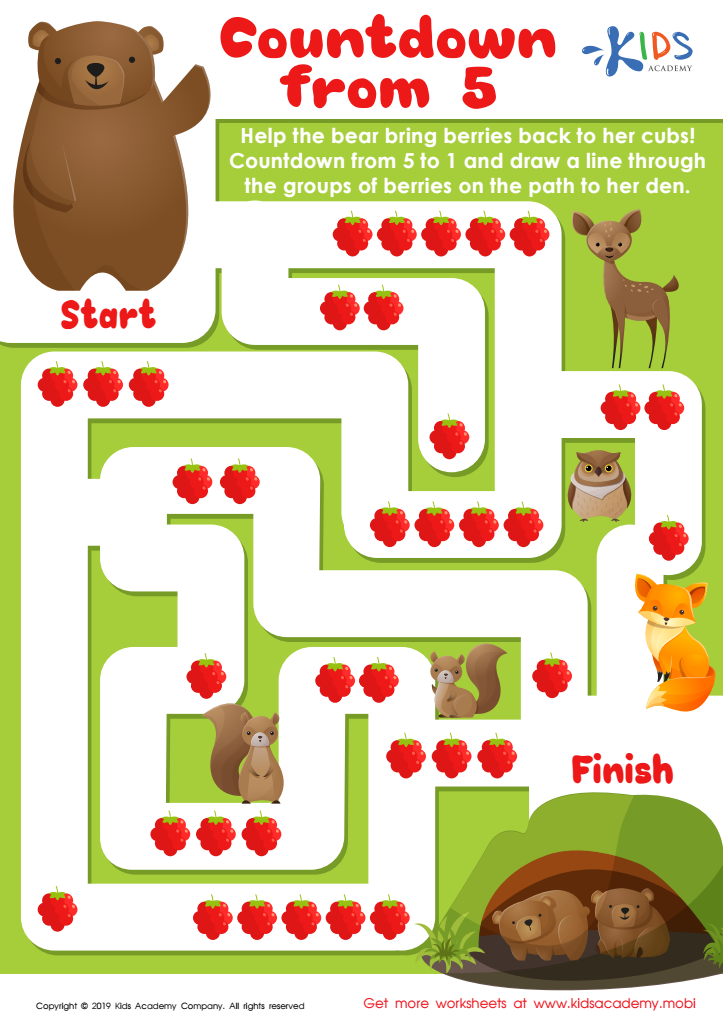

Countdown from 5 Worksheet
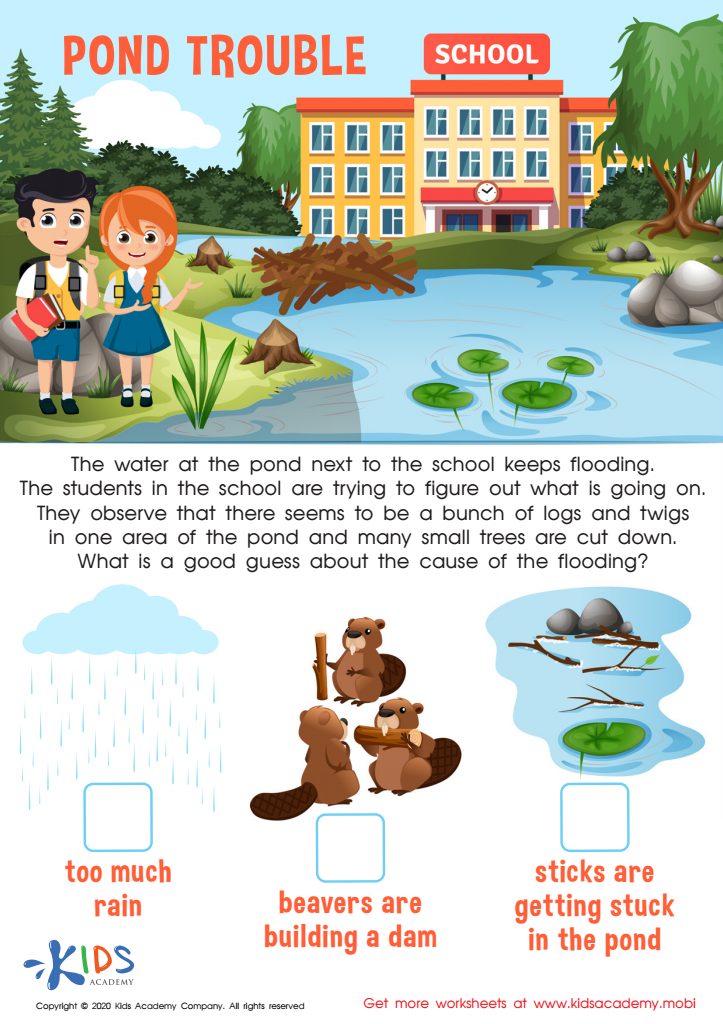

Pond Trouble Worksheet
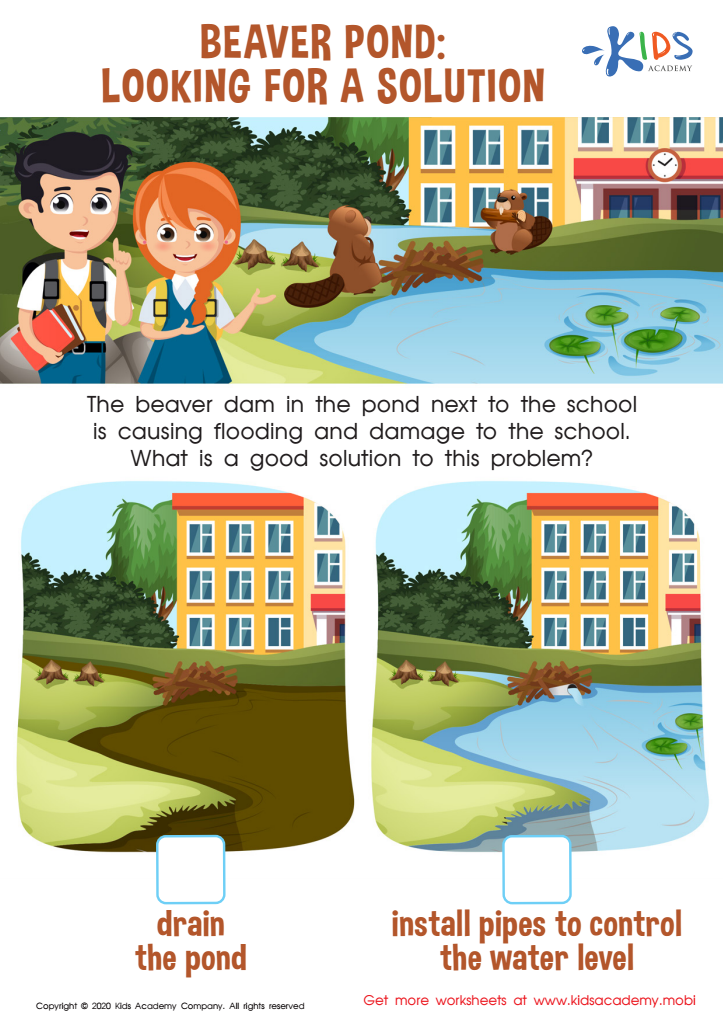

Beaver Pond: Looking for a Solution Worksheet
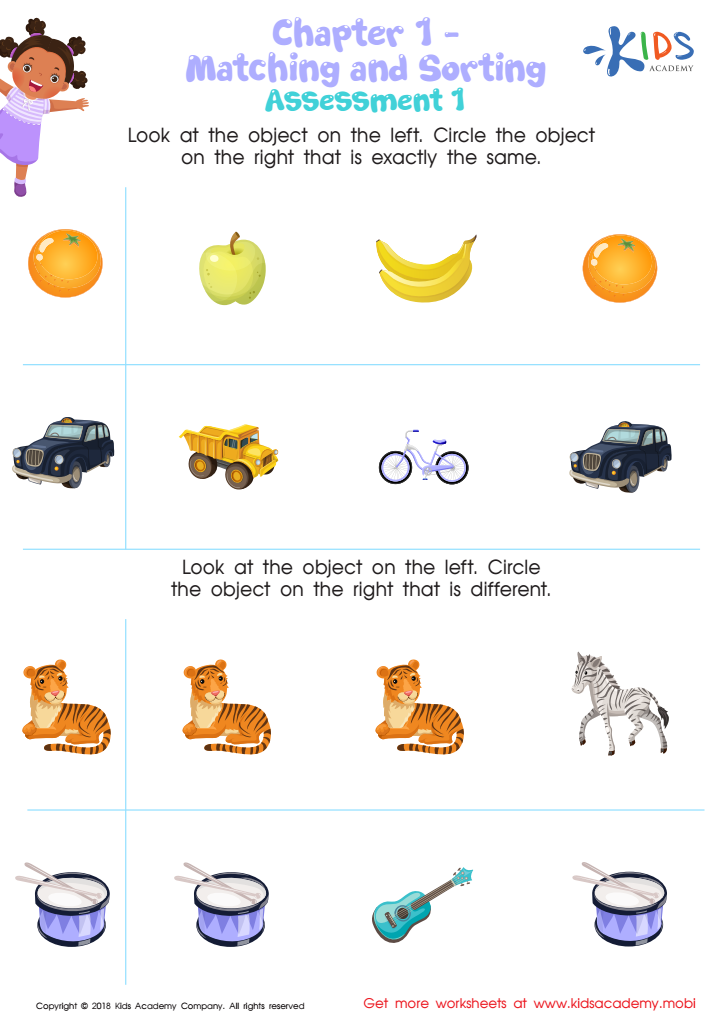

Matching and Sorting for Preschool: Assessment 1 Worksheet
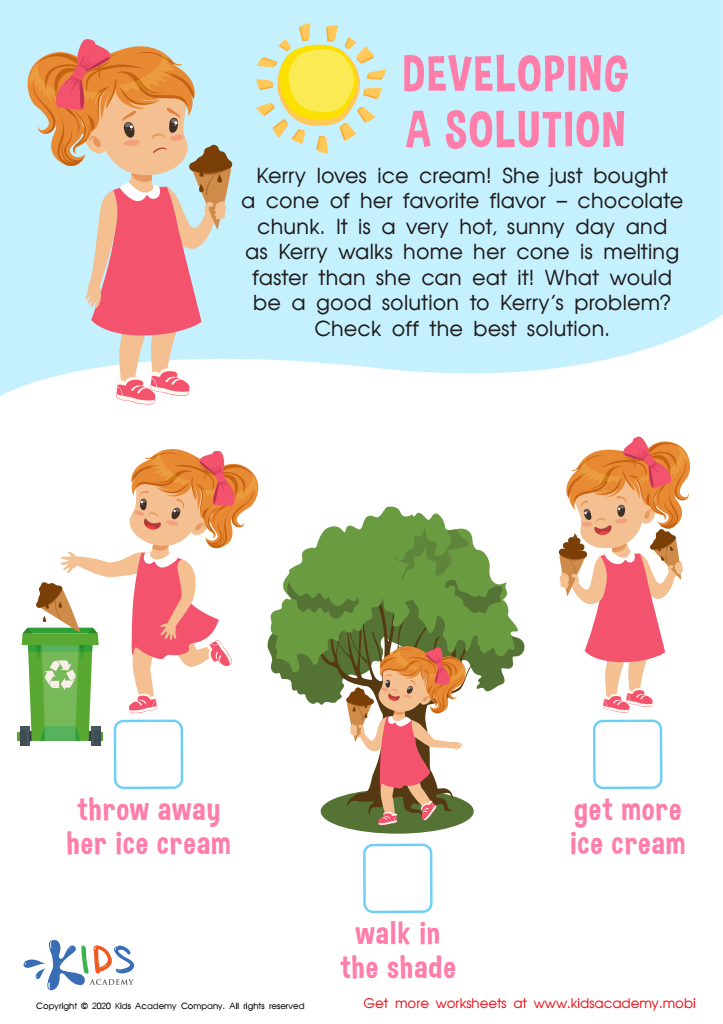

Developing Solution Worksheet
Parents and teachers should prioritize Easy Logical Thinking activities for children aged 4-7 because these activities lay a critical foundation for essential cognitive and problem-solving skills. During early development, children are naturally curious and eager to explore, making it the perfect time to introduce strategies that encourage logical reasoning. Engaging in activities that promote logical thinking helps children learn how to identify patterns, make connections, and understand cause-and-effect relationships.
These skills are not only vital for academic success but also crucial for everyday decision-making and navigating various situations in life. When kids engage in games, puzzles, or challenges that stimulate logical thinking, they enhance their ability to approach problems creatively and develop a methodical thought process.
Moreover, such activities foster social skills as children often work in groups, learning to communicate their thoughts and respect diverse perspectives. By cultivating logical thinking in young children, parents and teachers can significantly boost a child's confidence and readiness for future learning experiences. Ultimately, nurturing logical thinking early equips children with the tools necessary for critical and analytical thinking as they progress through their educational journey and into adulthood.
 Assign to My Students
Assign to My Students










